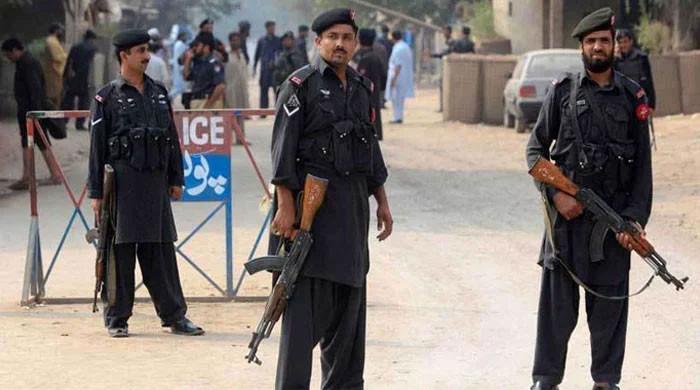A monsoon evening: Bridging borders through literature
Evening served as a powerful reminder of literature's role in fostering understanding across borders
September 14, 2024
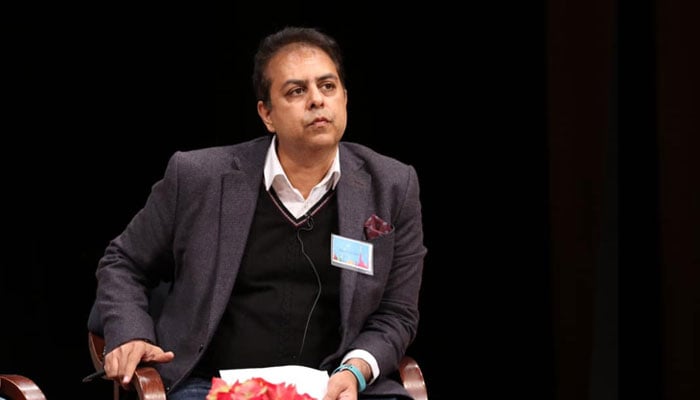
On a misty monsoon evening in Delhi, the India International Centre (IIC) hosted an event that transcended typical literary gatherings. It was the launch of Osama Siddique's Urdu novel, "Ghuroob e Shehr Ka Waqt" (The Hour of a City's Twilight), simultaneously held in Delhi and Lahore. The event brought together in Delhi a diverse group of prominent literary figures, performers, publishers, jurists, and storytellers, reinforcing the idea that literature can help transcend boundaries and divides and help foster understanding and friendship.
Meanwhile, Osama Siddique sat in his study in Lahore with shelves lined with beautifully bound books, across miles of sprawling fields, barbed wire fences and myriad villages and towns lit up for the night, as the rain pattered on the vast, leafy grounds of Lodhi Gardens with its historical tombs that lies adjacent to the prestigious IIC. But as he said later not just the Zoom link, but the rain-filled air also carried to him all the good vibes of love and friendship from his friends and admirers from Delhi, just like Kalidas’s "The Cloud Messenger" carried news of someone cherished separated by a distance.
The air was thick with anticipation, and conversations in hushed tones filled the room. It was clear that this was more than just a book launch; it was a celebration of shared cultural heritage and the enduring power of language to connect people across political divides. As he sat amidst his books the Pakistani writer could not help but be deeply moved by the assembling of over 60 people — some of them old friends, others perfect strangers — to celebrate his vast body of scholarly and literary work.
The timeless love for Urdu
The event began with a preliminary discussion on the role of Urdu in the subcontinent's history. For centuries, Urdu served as the lingua franca of the region, a language that gave a powerful and poignant voice to poets, philosophers, and revolutionaries alike. That evening, it was being celebrated once more as a bridge between cultures and two countries divided by borders. Not just a rejoicing in the glory of a grand language and a vast literature that forges many bonds between the two people, the night was also a celebration of deep friendships that spanned many decades, had stood the test of time, and continued to exude great warmth and mutual affection.
Mahmood Farooqui, the renowned dastangoi (traditional storytelling) reviver and performer, historian, actor, producer, litterateur, and an old friend of Osama’s from their Oxford days, paid rich tribute to Osama’s scholarly and literary contributions.
He spoke first of his earlier novel "Chand Ko Gul Karen to Hum Janen" (the title taken from Faiz Ahmad Faiz’s immortal poem Zindan Ki ek Shaam) which is a translation of the original English novel "Snuffing Out the Moon" and then quipped that his debut Urdu novel "Ghuroob e Shehr Ka Waqt" was both a source of surprise and dismay for him, as he had always believed that while Osama had excelled immensely in his intellectual and professional pursuits, he at least surpassed him in his knowledge of Urdu. But with this Urdu novel, even that notion had been shattered.
This was rich praise coming from a literary maestro — a generosity that only a dear old friend is capable of.
Borderless friendships
Mahmood then went on to speak very fondly about his and their common friend Prashanto Chandra Sen’s 30-year-old friendship with Osama and the many grand memories of times spent together and visiting each other in India, Pakistan and elsewhere in the world. As the event progressed, it became clear that the launch was as much about celebrating long-standing friendships as it was about the book itself.
Mahmood lamented the fact that Osama couldn’t join in person as his sunny personality would have made the occasion even more joyous but even this remote participation was a boon given the bleak days that we all faced in terms of bilateral ties. Mahmood recited a hilarious chapter from the book that satires the state of the courts and access to justice. Thereafter, he invited two highly prominent Urdu scholars and writers to discuss at length the impact, value and merits of the novel "Ghuroob e Shehr Ka Waqt".
Critical praise for 'Ghuroob e Shehr Ka Waqt'
The first to speak was Professor Khalid Javed, a renowned Urdu novelist whose novel Naimat Khana (Paradise of Food) won the prestigious JCB Prize, and a Professor of Urdu at the Jamia Millia Islamia in Delhi. Javed described Osama’s novel as a very important addition to Urdu fiction and called it a book that deserved to be celebrated not just as a novel but as a book of wisdom. He then dwelt on what he thought were its several salient points and particularly admired its deep exploration of the decline and fall of a city, describing it as a master achievement.
He said that the description could apply to any city and thus was universal and cosmopolitan in its appeal as the novel’s granular portrayal of a city's decay reflected broader themes of cultural and global issues. He declared the prose quality to be excellent and highlighted the links that the novel makes with great epics and dastans of Urdu literature.
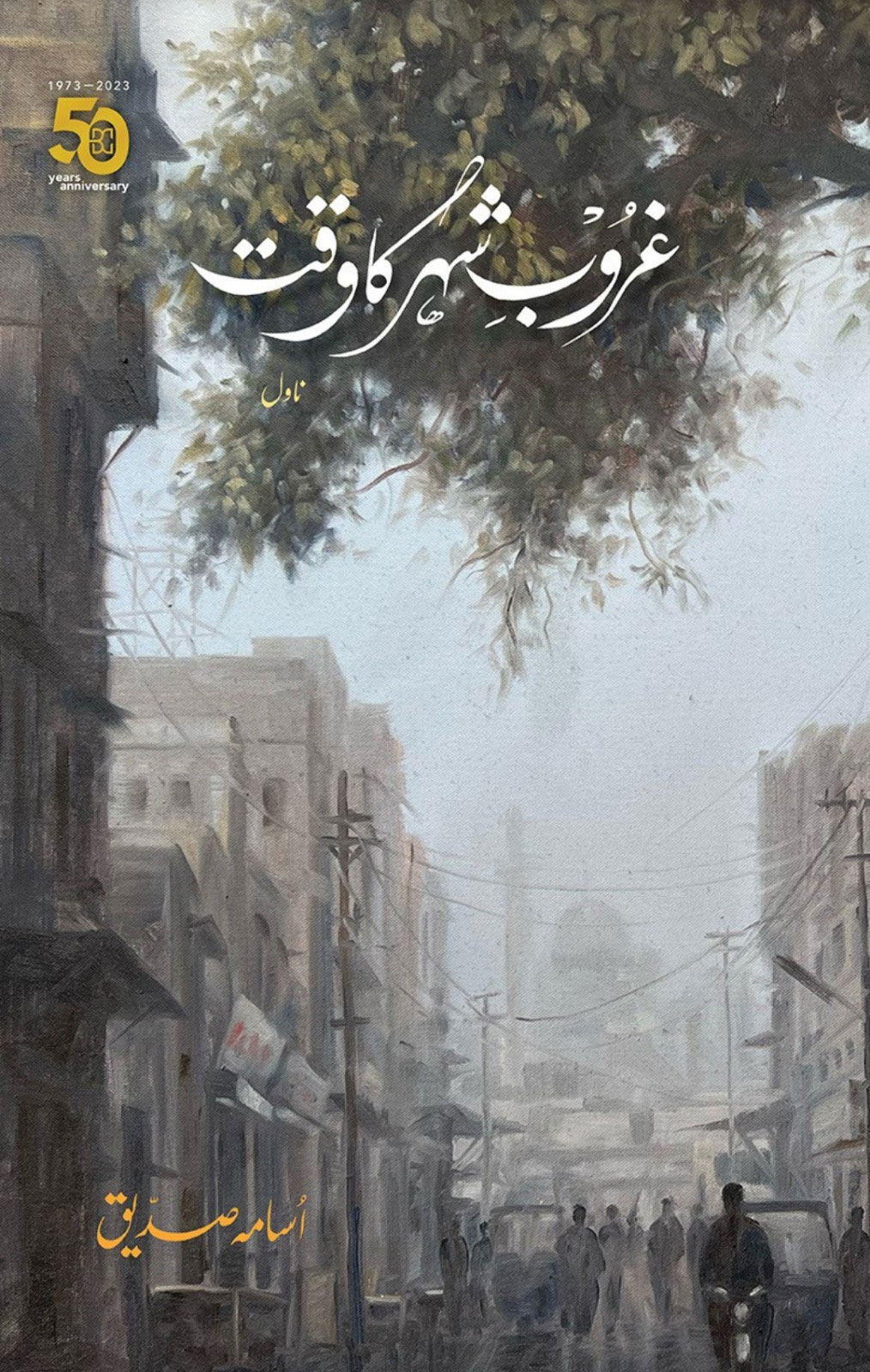
The most powerful example of the post-modern narrative in Urdu and a remarkable pastiche, a thinking novel as defined by Milan Kundera, a bleak narrative lightened by black humour, an extraordinary dystopian novel, a unique literary experiment in Urdu, and a book deeply redolent with social awareness and consciousness that met all artistic expectations even while it often pursued a deep realism, are some of the several highly praiseful descriptions of "Ghuroob e Shehr Ka Waqt" that Khalid Javed came up with in his talk. He also quoted several excerpts from the novel.
He was followed by Professor Ahmed Mahfouz, Head of the Urdu Department at Jamia Millia Islamia and a highly respected writer and scholar, who described the discussion surrounding this novel as significant in many ways.
Professor Mahfouz said that Osama Siddique was not new to the literary world. What was particularly special, he said, was that although Urdu literature and literary critique were not Osama’s primary professional fields, contributions from someone outside these areas often added greater value than those from individuals regularly involved in or associated with Urdu literature. Hence Osama’s contribution became worthy of special importance and appreciation.
He particularly highlighted and praised how Osama had incorporated significant elements of classical Dastans into a modern context with extraordinary ability, connecting past heritage with contemporary issues, mentioning also his earlier contribution in a new republishing of the grand epic Tilism e Hoshruba. He also marvelled at the quality of Osama’s literary narrative, its extraordinary creative expression, and the universal appeal of his Urdu novel, given that Osama usually operated in the world of English.
Critical Praise for 'Snuffing Out the Moon' (Chand ko Gul Karen to Hum Janen)
The discussion then shifted to Osama’s earlier epic historical novel "Snuffing Out the Moon" and the soft-spoken and highly eloquent Ranjana Sengupta (who had commissioned and published it for Penguin Random House) recalled her experience of reading the book which she described as a vast, thoughtful and reflective exploration through epochs and civilisations of the grand questions that confronted human civilisation, the nature of good and evil, and how people separated by millennia respond to authority, whether political or religious or social and why some people when confronted with unattractive situations acquiesce and others question, rebel or dissent.
Also, what typically happens to the latter and how do each of these epochs respond to those who dissented? Ranjana dwelt in detail on the style, themes, deep philosophical questions raised, and complex architecture and narrative arrangement of the book which she said Osama pulls off with aplomb. She called the novel an ambitious, inventive, audacious, and beautifully written book. She also read excerpts to reflect Osama’s style and way of thinking. It was very inspiring to see a publisher so deeply fond of and invested in a book that she had published.
Thereafter, Nikhil Kumar, a man of letters and a young scholar proficient in Urdu, provided an insightful assessment of both of Osama Siddique's novels, making linkages between them, and drawing comparisons with Italo Calvino's "Invisible Cities". He said Osama’s novels were not just permeated by loss but also offered a profound sense of romance, woven with evocative celebration of places, monuments, history and cultural past.
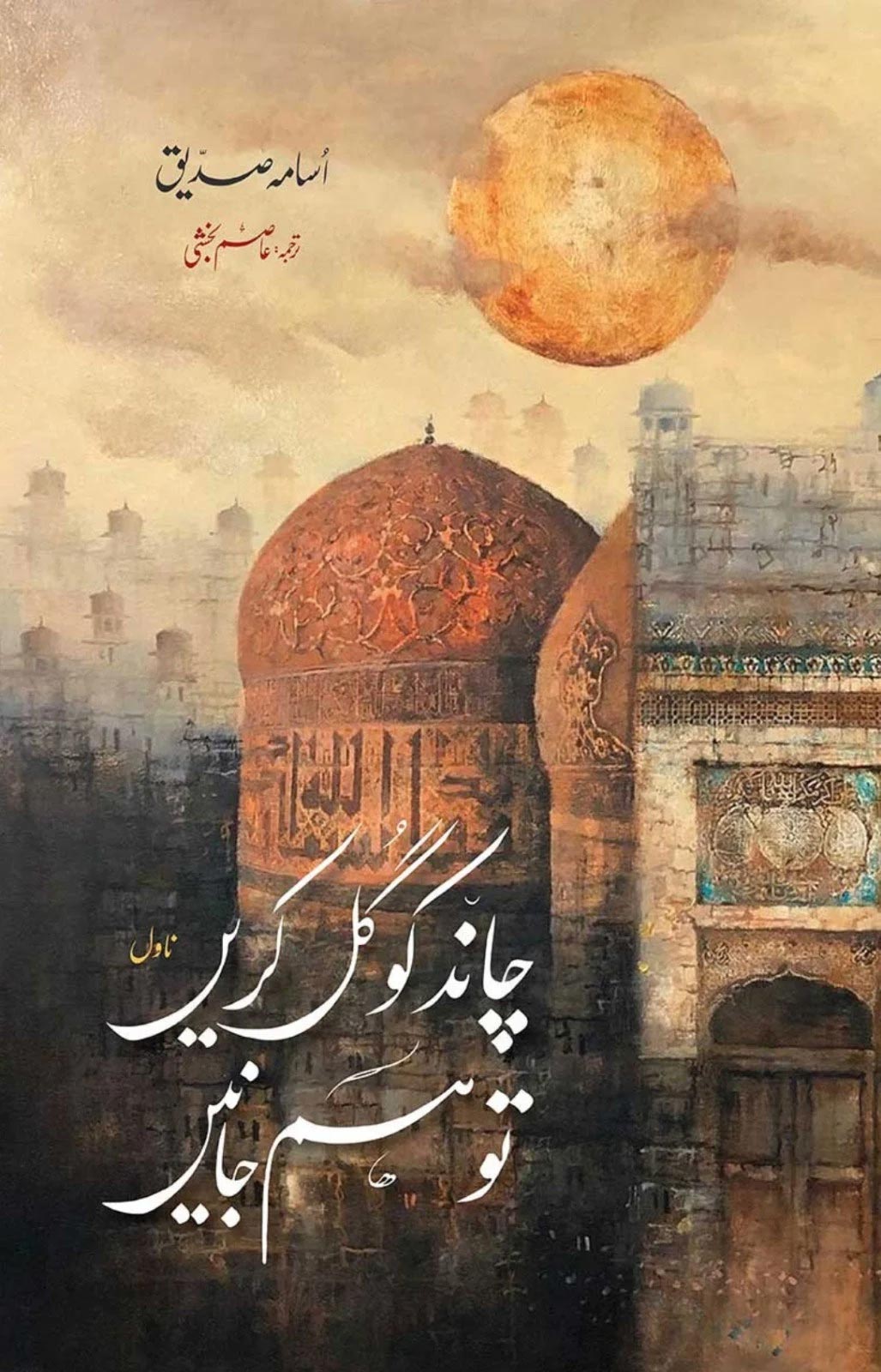
He said that there was a Dickensian quality to his descriptions of cityscapes, that were worthy of any anthology. Talking of "Ghuroob e Shehr Ka Waqt", he said that it captures the receding memory of a city now obscured by growing mist, a grey haze, and a smog that casts a shadow over both the city and the narrative. The novel, he said, carried a deep sense of nostalgia and poignant reminder of loss — an elegiac tone but also an undercurrent of optimism and the enduring spirit of the city and its people. Thus, resilience and the possibility of renewal; a beacon of aspiration and promise and not just lamentation.
He then focused on many other aspects and layers of the novel and said that structurally it expanded on Invisible Cities. He mentioned how it carried so many different writing styles. He dwelt also on its destabilising treatment of time which reminded one of the works of Alice Munro as Osama, he offered, had a similar technique. He then went on to discuss various characters in the book.
Nikhil Kumar said that he also felt that both novels were in conversation with each other and also with many other books and literary forms. Both books also had in common, he said, the characteristic that they were capacious in their themes, narrative voices, characters, and ideas and were really novels of ideas.
As an environmentalist, he was thrilled that the environment figured prominently in both books, something the importance of which had been highlighted by Amitav Ghosh’s recent environment-themed works. In terms of style, he said that Osama used different registers and idioms; experimented with structure that helped expand the scope of the novel; and was rich in imagination with an unembarrassed sense of literature as performance.
Memories, remembrances, shared times, jokes — An evening of nostalgia
While much was offered by way of literary assessment and appreciation of Osama’s novels, the proceedings were interspersed by lighter moments and narration of fond memories by some of Osama’s closest friends from India who had the audience constantly smiling and laughing. Not just literature, it was the strength of their bond which made the evening memorable as a celebration of people-to-people relations despite all the challenges.
Prashanto Chandra Sen, a long-time friend and distinguished lawyer and jurist, recalled his first meeting with Osama at Oxford and said that there was a magnetic intensity about him, and that, "The initial encounter left such an unexplained afterglow that I felt naturally gravitated towards Osama." He spoke of numerous weekends celebrating Indian and Pakistani cuisine with friends, and wonderful holidays spent together across both countries and the many memorable places visited together. He described Osama as a true Renaissance mind who had produced three great books and had much more to say about him.
He was followed by Akshay Jaitly, another prominent jurist and founder of India’s largest law firm, as well as the Pakistani author’s old Oxonian friend, who lamented that Osama couldn’t be there with them and that he would have loved for them to have had the opportunity to actually meet him and experience his warm presence.
Akshay said that it was important that Pakistani writers could come to India for occasions such as these. Describing their first meeting he said that they had met at a Vikram Seth reading at the Blackwells bookstore in Oxford. He recalled Osama asking a question in his usual unabashed manner, felt drawn to him, and thus started a conversation, 30 years ago, that continues today, even while they pursued different careers, moved to different countries, and even different continents.
He recalled conversations on cricket, politics, casually solving the problems of the world, looking for decent South Asian food given the insipid local fare at Oxford, film sessions watching "Sholay" and "Maula Jutt", attending each other’s weddings, and being mistaken for real brothers while walking the streets of the university, due to their close resemblance. Mahmood also informed the audience how Akshay’s mother, also present in the audience, referred to both as her sons for the same reason.
Describing what was enduring about Osama, Akshay said, “Over all of these years that we've known each other, he has this very, very deep curiosity for the world and the fact that he remains a lifelong student. I think in the course of writing some of his books, he's had to learn about things he did not know about, and that comes very easily to him." He went on to say that Osama was obviously a man of letters with a deep love of books. He had always also remained deeply engaged with the law and that reflected even in his fiction but what characterised him also was his wit, humour and sarcasm.
Equally reflected in his writing and his work, Akshay said, had always been his deep sense of justice. Akshay went on to speak of Osama as a liberal with a small “L”, a man of really sharp wit and keen observation of world affairs with an utter inability to suffer fools, especially if they were public figures. This a great example of the pen being mightier than the sword and hence a person worth listening to. He added that even if they met after five years, the conversation would naturally turn to serious issues within five minutes, though one knew that a sharply humorous comment was just around the corner. He concluded that everyone present here was missing out by not being able to meet him in person and that he had tried to keep up with his wit for thirty years and hadn’t quite managed.
These personal anecdotes and remembrances painted a picture of friendships that have endured despite geopolitical tensions, serving as a testament to the power of shared intellectual pursuits and cultural exchange.
In pursuit of justice
Prashanto Chandra Sen also spoke at length about Osama’s book Pakistan’s Experience with "Formal Law: An Alien Justice", drawing many connections and comparisons with the Indian justice milieu. "The book talks about the legal system of Pakistan and its colonial heritage from which it arose, and how it was an alien system then and continues to be in contemporary times."
Sen spoke both about Osama’s assessment of the colonial impact on South Asian law and the resulting alienation, and also his contemporary appraisal of access to justice for ordinary people through path-breaking surveys and sociological evaluations.
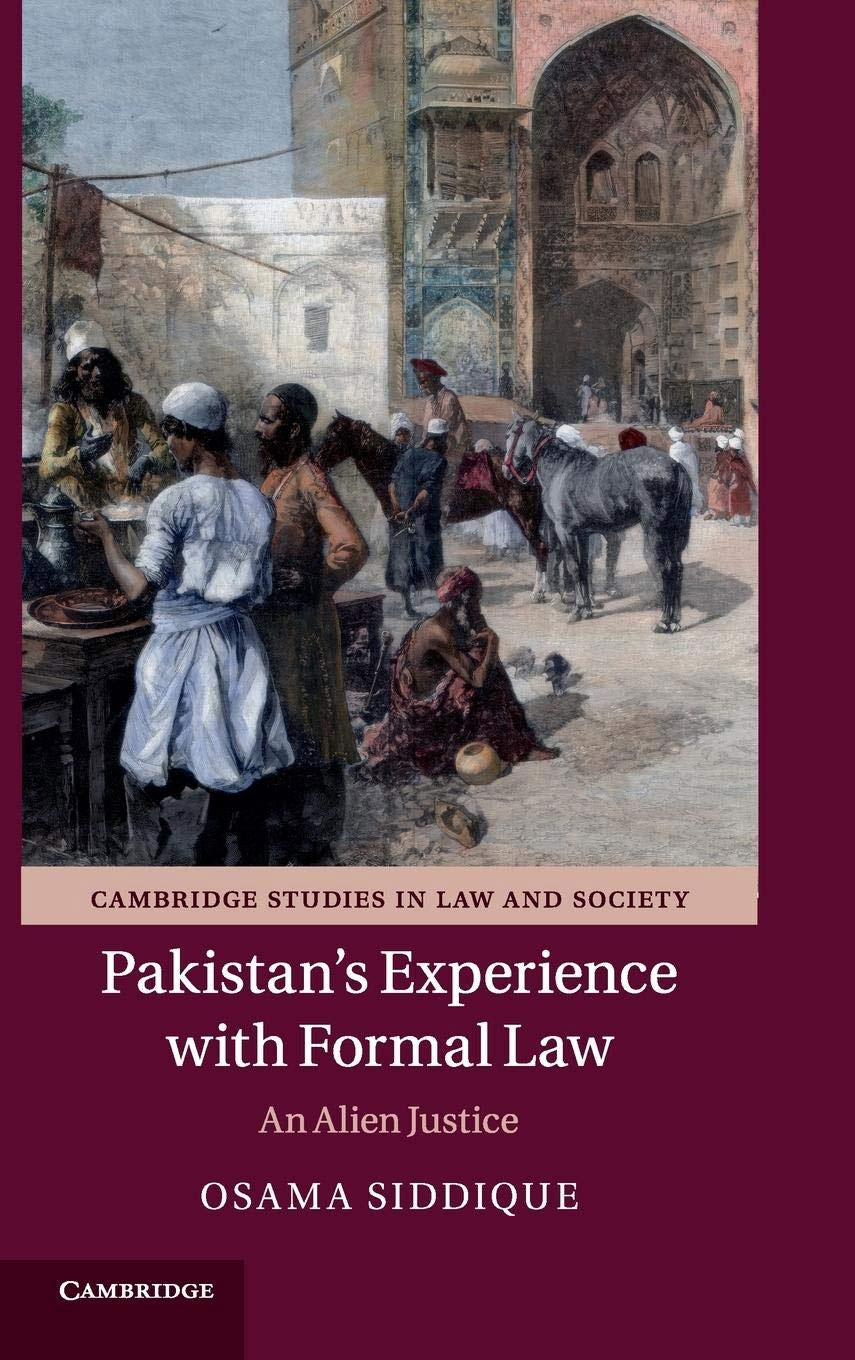
He dwelt also on the book’s scrutiny of post-colonial reform efforts, surmising, "Osama's critique of reform efforts suggests that those implementing reforms often need reform themselves, and the book argues for a shift in focus from courts, lawyers, and judges to the litigants and underlying causes of disputes."
A veteran diplomat and politician remembers, and hopes
Osama then spoke briefly and said that all three books discussed that evening were meant to be bridges between the people. “They tell stories common to all of us, being vehicles for a common dialogue and conversation,” Osama said. “Hence, both countries reflect in and through them and many of the pleasant memories of him meeting his friends at different places in the region also show up in them.”
Hence, he tried to tell stories that transcended boundaries and permeated all of their lives, said the author concluding his talk by sharing how much he valued his cross-border friendships and how they had enriched his life. It was visible how deeply moved he was by the tremendous outpouring of love for him on that rainy night in Delhi.
The event concluded with moving and thoughtful remarks from Mani Shankar Aiyar, a veteran diplomat, politician, and writer. Born in Lahore and a long-time, bold and ardent advocate of robust Pak-India relations, Aiyar shared personal stories and reminiscences from the time of his service as a diplomat in Pakistan that illustrated the strong people-to-people connections between India and Pakistan. He fondly remembered his recent meeting with Osama in Lahore and was full of praise for their interaction, the interview he conducted with him, and the bent and quality of his written output.
Mr Aiyar's words brought the evening to a poignant close: "So why do we keep ourselves apart? Why do we keep thinking that all Pakistanis are terrorists? If you say that in India, people will start clapping because we've never really met them. And when we do meet, it's all about love and friendship."
As the event drew to a close, the significance of the evening became clear. It bears repeating that it was not just a book launch, but a living testament to the enduring bonds between the people of India and Pakistan. It served as a powerful reminder of the role literature can play in fostering understanding across borders, and the potential for cultural exchange to bridge even the widest of divides.
The applause that filled the hall as the last speaker concluded seemed to echo this sentiment. It was an affirmation not just of Osama's work, but of the idea that despite all differences, real and perceived, there remains common ground in the shared love for language and literature. It was also a testimony to a remarkable and abiding story of friendships that had only strengthened over the decades.
As those, who attended, left the IIC, the rain had subsided, leaving behind a glistening Delhi night. The conversations they had listened to and the stories they had heard must continue to linger in their minds, reaffirming faith in the power of words to unite, inspire, and transcend the boundaries that separate us.










